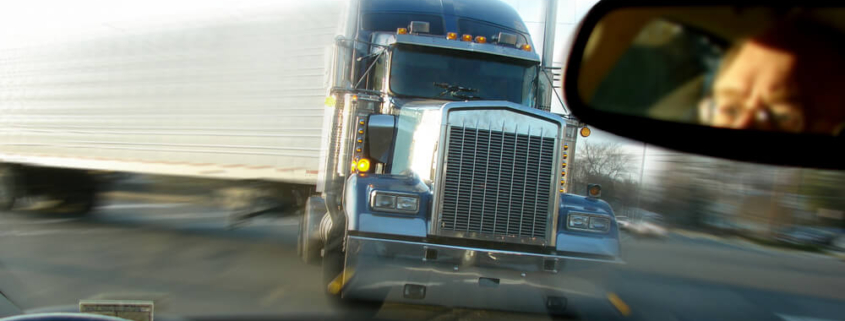Truck Jackknife Accidents: Why They Happen and How to Avoid Them
Jackknife truck accidents occur when the cab becomes detached from the trailer, causing the trailer to flip over or overturn. In these accidents, the truck skids, the driver loses control, and the trailer leaves its alignment.
Out of nearly two million truck accidents occurring each year in the United States, jackknife accidents account for almost 14% of fatalities as per a report by the NHTSA. A formidable truck accident attorney in West Virginia can help you achieve the maximum financial compensation you are entitled to for a jackknife truck injury.
Top Causes of Jackknife Truck Accidents in West Virginia
Jackknife incidents usually occur because of the following reasons:
High speeds
Speeding is one of the most common factors in reported jackknife truck accidents. Vehicles are required to maintain an appropriate stopping distance with every 10mph increase in their speeds. In fact, trucks need to leave 20 – 40% more space as compared to passenger cars. Speeding truck drivers need to hit the brakes quickly and hard to avoid rear-ending a vehicle. Unfortunately, the trailer doesn’t always slow down as the front cab slows.
Driver negligence and mechanical defects
Equipment failure is the next largest cause of jackknife collisions. Malfunctions can occur in any component of the truck. In relation to this, tire defects account for 30% of crashes. It is possible for the truck manufacturers to have installed a defective component. Inadequate maintenance and inspections may also result in vehicle jackknifing on the road.
Slippery conditions
Heavy rain reduces visibility on the roads and truckers risk jackknifing when they brake suddenly. Winter can mean icy conditions on the road. Rainfall can make the roads slippery as well. Truck drivers should essentially practice care when managing their vehicles during bad weather conditions. Furthermore, they seldom do because of rushed delivery schedules.
Imbalanced or heavy loads
Jackknife accidents may occur because of the truck’s improperly balanced load as well. An employee may not have loaded the items in the proper way or may have overloaded the truck. The trailer can sway while the truck is in motion in case of an imbalance.
Fatigued or inexperienced drivers
A large chunk of truck drivers’ experience comes from driving in the real world even after undergoing adequate training hours. New drivers can accidentally misjudge braking distances.
Truck drivers often need to drive when fatigued to remain on schedule. Tired driving is a major safety hazard in the trucking industry. Being sleepy behind the wheel of an 80,000-pound vehicle comes with a lot of risks.
Preventing Jackknife Truck Accidents
Jackknifing can be caused by a wide variety of factors, which means that several different parties play a role in preventing such tragic accidents.
Qualified trucker
Responsible and trained truck drivers are vital to preventing any type of truck accident, including jackknife accidents. The truck driver needs to have adequate experience and training to make sound decisions during risky situations.
Smooth and gradual braking plays an important role in avoiding jackknifes. This means the driver needs to anticipate the need for hitting the brakes so that the truck decelerates over a longer distance.
Well-maintained vehicle
Trucking companies are responsible for ensuring the brakes and other components of the truck are in top shape. FMCSA requires these companies to regularly inspect, maintain, and repair the trucks. They are also mandated to keep a record of inspection and maintenance work performed.
Commercial motor vehicles (CMVs) over 10,000 pounds need to pass yearly Department of Transportation inspections. Standard DOT truck inspection involves looking at coupling devices, brakes, safe loading, steering mechanism, securement of cargo, and trailer bodies, among other things.
Jackknife safety systems
Existing technologies can be employed to avoid a jackknife accident. An anti-lock braking system (ABS) is a fair example that prevents the wheels from locking up while braking. Trucks released since 2000 are mandated to have ABS. Electronic stability control (ESC) can also prevent jackknifing and other accidents by automatically applying selective brakes when a vehicle control issue is detected.
Liability in WV Jackknife Truck Accident Claims and Lawsuits
You and your attorney, someone who has been through the legal hurdles before and knows what to look out for, need to establish the fault and negligence of other parties to obtain compensation.
These are a few common examples of negligence in Charleston truck jackknife incidents:
- Negligent truck driver: Distracted driving, speeding, inadequate qualifications, DUI
- Negligence of truck owner or company: Poorly maintained trucks, hiring unqualified drivers, improper cargo loading, deploying a truck that fails to pass federal or state standards
- Negligent product manufacturer: Producing and distributing defective truck components
- Negligent highway safety agencies: Government agencies can be held responsible if they failed to clear up debris or place warning signs near steep curves, among other things that make the road dangerous.
Get a Competent Truck Accident Attorney in West Virginia on Your Side
The truck accident attorneys at the law offices of Bailey, Javins, & Carter have the experience, knowledge, skills, and resources to establish negligence and fault of the truck driver and the trucking company. Our attorneys have a deep understanding of federal and state laws to prepare a strong claim and negotiate assertively with the insurance company to help you secure the maximum possible compensation.
Schedule your free and confidential consultation with us today. Call 800-497-0234 or write to us online.




